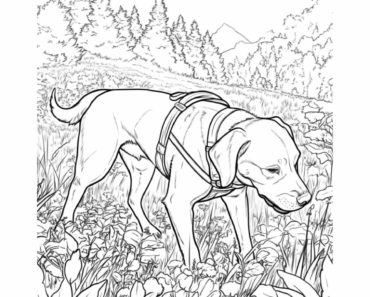Dogs have been loyal companions to humans for thousands of years, playing vital roles across cultures—from protectors and hunters to cherished members of the family. Their intelligence, loyalty, and social nature make them incredible pets, but they also require proper care, attention, and training to thrive.
If you’re a new dog owner or simply want to improve your pup’s well-being, here are the fundamentals of responsible dog care and training.
1. Dogs Are Social Animals—Don’t Leave Them Alone for Long
Dogs are naturally pack animals. They crave companionship and structure. When left alone for long periods, they can develop anxiety or destructive habits like chewing or digging.
What you can do:
-
Set up a designated safe space when you’re away.
-
Provide chew toys and mentally stimulating activities.
-
Consider doggy daycare or a pet sitter if you’ll be gone often.
2. Provide High-Quality Nutrition
Your dog’s diet plays a critical role in their health, appearance, and energy levels. While premium dog food might cost more, it pays off in the long run with fewer vet visits and a healthier pet.
Look for food that:
-
Has real meat as the first ingredient
-
Contains no unnecessary fillers or artificial preservatives
-
Matches your dog’s age, size, and breed needs
A healthy dog has a shiny coat, bright eyes, and consistent energy—just like people, they are what they eat.
3. Train with Positive Reinforcement
Training is the key to a well-behaved dog and a happy home. Dogs need boundaries, and they learn best when they understand that good behavior leads to good things—like treats, toys, and praise.
Positive training tips:
-
Reward good behavior with treats or affection
-
Use consistent commands and routines
-
Avoid yelling or harsh punishment
Dogs learn faster when they feel safe and encouraged.
4. Discipline Without Harm
There is a crucial difference between discipline and abuse. Physical punishment, like hitting or kicking, is never acceptable and can lead to fear, aggression, or long-term trauma.
Instead, try:
-
A firm verbal “No”
-
A quick, harmless spray of water
-
Removing attention or rewards for bad behavior
The goal is to teach your dog to respect you—not fear you.
5. Treat Dogs Like Children
Dogs are like toddlers—they explore, test boundaries, and seek comfort. Leaving them unsupervised for too long is asking for trouble.
Be sure to:
-
Puppy-proof your home
-
Supervise them during training
-
Provide love, structure, and consistent feedback
Dogs look to their humans for leadership. The more time you invest, the more you’ll get back in love and loyalty.
6. Create a Strong Human-Dog Bond
A well-trained dog is one you can walk without a leash tug, bring around guests without worry, and trust to behave at home. That kind of bond comes from understanding, trust, and communication—not just commands.
Build that connection by:
-
Spending quality time daily
-
Offering play, touch, and praise
-
Being patient, especially in the early stages
Final Thoughts
Caring for a dog means much more than just feeding and walking them—it’s about raising a balanced, confident, and well-loved member of your family. With positive training methods, quality nutrition, and daily interaction, your dog will reward you with years of love, loyalty, and tail-wagging happiness.






